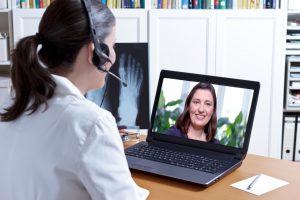Never in the history of man has digital transformation become so pervasive. Indeed, the “new normal” has pushed man to harness the internet like never before. You could say it’s a bad thing. For the street vendor who just wants to earn his keep by selling your fave tacos and lasagna in the city park, it’s definitely bad for his business. But for a business tycoon who has bid his time to make the most of all the comings-and-goings online, it’s one gold rush hard to pass up.
As digital is here to stay, what’s left for you is to adjust your sails. And hopefully, like the Spanish Armada of old, you would be able to expand your horizons and conquer new worlds like never before. It may not be on such a grand scale. But truly, when you are able to factor it all in, you could end up in a better position than when the coronavirus first visited America. Think Jeff Bezos and a slew of entrepreneurs who saw their fortunes skyrocketing in COVID-19 times. Then, you can call it a chance of a lifetime.
Digital Medicine
Adopt or die. If there was one area in the human existence that had to adapt fast to COVID-19 it is the area of medicine. Where students need not meet their teachers in online learning, patients are increasingly relying on the internet to get the medical services they need. In short, the visit to the bricks-and-mortar office of a physician has slowly become a thing in the past.
In a sense, the coronavirus has triggered a wave of changes to the healthcare system more than any political movement could. The rapid advance of the virus which took hold of America in a matter of weeks (faster than the Spanish flu) forced the medical community to react or be overwhelmed. A 2019 survey by Price Waterhouse Cooper detailed the lack of digital components in the U.S. healthcare strategy. Now, everyone is getting a rude awakening.
And Congress too was quick to react. As soon as COVID-19 came to town, the august body lifted restrictions long imposed on telehealth services. Today, telemedicine has been made available for every sector in American society, not only in the urban area.
To note, telemedicine services provide the convenience of speed and availability that traditional medical services can’t. It’s like having a doctor on your smartphone. Not only does it give patients better monitoring wherever they may be, but it also facilitates better quality care overall.
Online Education

Call it online learning, distance education, or online instruction. One thing has become apparent the giant tidal wave that is COVID-19 has exposed the strengths and weaknesses of the American educational system. While online classes offer a safer alternative to the coronavirus situation, it also brought to the foreground the fact that American policymakers and government officials have still a lot of homework to do when it comes to ensuring quality education is available to everyone.
Come to think of it, the idea of online education spells a lot of convenience for students. For one, it bridges the geographical gap. Distance education allows students to have access to courses that are otherwise not available in the places where they are living. This way access to education paves the way for more people to learn.
Moreover, online learning prepares the student to thrive in a technology-centric world. Before COVID-19 for instance, MIT (Massachusetts Institute of Technology) made taking online classes a requirement in many of its learning programs.
And the results were amazing. A whopping 85% of students felt satisfied with their online learning experience in comparison to face-to-face learning. Only a small minority, or 15%, expressed dissatisfaction.
But the challenges to digital learning has become apparent over time. Low-income students for one find it more of an uphill climb as the availability of the internet is slim. Thus, when it comes to performance and overall learning results, poorer students are at a great disadvantage.
Seeing the great divide, those in government are starting to level the playing field, stepping up to the challenge. A classic example is Boston. The city has provided 20,000 Chromebooks and created hotspots in various places to allow learners access to the internet. But many experts are saying these measures are far too late and should have been done years ago.
Digital presents a golden opportunity and a huge challenge. It really depends on how you look at it. But as its benefits are now coming to the surface, making the most of it can be a highly-rewarding adventure of a lifetime. All you have to do is put your mind to it and adjust your sails accordingly.

